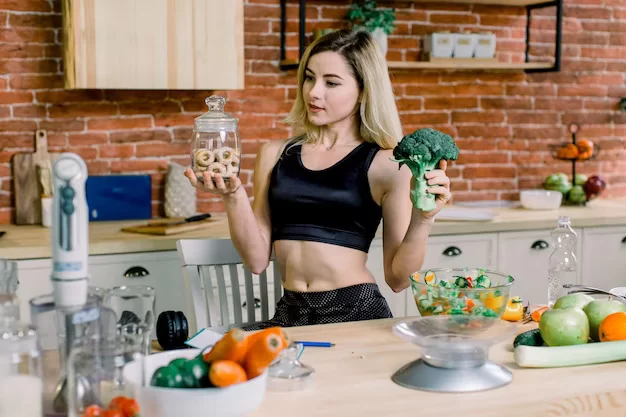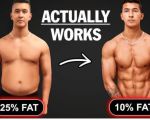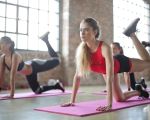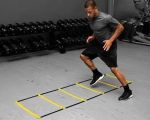
Understanding Gym Nutrition: What You Need to Know
When I first started hitting the gym, I thought lifting weights and running on the treadmill were the only things that mattered for getting in shape. But soon, I realized that what I put into my body was just as important as my workouts. Nutrition plays a huge role in achieving fitness goals, whether you're aiming for muscle growth, fat loss, or just overall better health. In this article, I'll share the most important nutritional guidance I’ve learned over the years to help you get the most out of your gym sessions.
Why Nutrition Matters for Gym-Goers
Every time you step into the gym, your body goes through a series of intense physical processes. Your muscles break down, and energy is used up. This is where nutrition steps in. If you don’t provide your body with the right nutrients at the right times, you might not see the results you're hoping for. Proper nutrition helps repair muscles, replenish energy stores, and improve recovery times, all of which are essential for making progress in the gym.
The Right Macronutrients for Gym-Goers
When it comes to nutrition for gym-goers, the three macronutrients—proteins, carbohydrates, and fats—are crucial. Let me break down how each of them affects your body and why they are important:
1. Protein: The Muscle Builder
Protein is probably the most talked-about macronutrient when it comes to gym nutrition, and for good reason. After a workout, your muscles are in need of repair, and protein helps rebuild them. It’s important to consume high-quality protein sources to support muscle recovery and growth. I typically aim for around 1.6 to 2.2 grams of protein per kilogram of body weight. Some of my favorite protein-rich foods include chicken, turkey, fish, eggs, and plant-based sources like tofu and lentils.
2. Carbohydrates: Your Body’s Energy Source
Carbs are often misunderstood, but they are essential for fueling your workouts and helping your body recover afterward. Your muscles store carbohydrates in the form of glycogen, which is used as energy during intense exercise. If you don’t consume enough carbs, you might experience fatigue and find it harder to push through your workouts. I personally focus on complex carbs like sweet potatoes, brown rice, quinoa, and whole grains. These provide slow-releasing energy that keeps me fueled during longer gym sessions.
3. Fats: Supporting Overall Health
Fats are an important part of a balanced diet, especially for hormone regulation, brain function, and joint health. Despite what you might have heard, not all fats are bad. Healthy fats from sources like avocado, nuts, seeds, and olive oil are essential for overall health. I make sure to include some form of healthy fat in each of my meals to help support my body’s recovery and well-being.
Meal Timing: When to Eat for Optimal Performance
In my early days of gym-going, I wasn’t too concerned about meal timing. But over time, I realized that when I ate mattered just as much as what I ate. Meal timing can help maximize your energy levels during workouts and promote faster recovery afterward. Here's what I’ve learned:
Pre-Workout Nutrition: Fueling Up
Before hitting the gym, it’s essential to eat a meal that provides both protein and carbohydrates. Protein helps with muscle repair, while carbs provide the energy you need to power through your workout. I usually have a meal 1-2 hours before working out. A go-to pre-workout snack for me is a banana with peanut butter or a protein smoothie with oats.
Post-Workout Nutrition: Repair and Recover
After a tough workout, your body needs both protein and carbs to start the recovery process. Protein helps rebuild muscle fibers that were broken down during your workout, while carbs replenish glycogen stores. Ideally, you should eat a post-workout meal within 30 to 60 minutes after exercising. I often have a protein shake with a piece of fruit or a chicken salad with quinoa after a workout.
Hydration: The Often Overlooked Aspect of Nutrition
One aspect of gym nutrition that many people overlook is hydration. Staying hydrated before, during, and after your workout is essential for maintaining performance, preventing cramps, and aiding recovery. Water is usually sufficient for most people, but if you’re doing intense or long-duration workouts, you might want to consider an electrolyte drink to replenish lost minerals. I always make sure to drink water throughout the day and take sips during my workout to stay hydrated.
Supplements: Should You Consider Them?
Supplements are often marketed as the "secret" to gaining muscle and getting fit, but I’ve learned that they’re not a replacement for a balanced diet. They can be helpful in certain situations, but they should only be used as a supplement to, not a substitute for, proper nutrition. Some common supplements that I personally use include:
- Protein Powder: I use it as a quick and convenient source of protein, especially after workouts.
- Creatine: Helps improve strength and muscle mass, particularly for high-intensity workouts.
- Branched-Chain Amino Acids (BCAAs): Aid in muscle recovery and reduce muscle soreness.
Before considering supplements, it's always a good idea to consult with a healthcare professional or nutritionist to make sure they're right for your specific needs and goals.
Meal Planning for Gym-Goers
One of the most effective ways to stay on top of your nutrition is through meal planning. I’ve found that prepping meals in advance saves time, helps me stay consistent, and ensures I’m hitting my macronutrient goals. Here’s how I plan my meals:
- Choose a day to prep meals for the upcoming week. I usually do this on Sundays.
- Focus on a balance of protein, carbs, and fats in each meal. I try to keep meals simple but packed with nutrients.
- Cook in bulk. I cook large portions of chicken, rice, vegetables, and other staples so I can mix and match throughout the week.
- Store meals in portioned containers so I can grab them quickly when I need a meal.
Meal planning doesn’t have to be complicated. Once I got into the habit, it became second nature, and I’ve noticed significant improvements in my energy, performance, and recovery as a result.
Real-Life Success Story: How Nutrition Changed My Gym Journey
When I first started working out, I struggled to see progress despite being consistent with my gym sessions. It wasn’t until I took a closer look at my diet that I realized I was missing key nutrients. Once I focused on eating balanced meals with the right macronutrients, everything changed. My strength improved, I started seeing muscle definition, and I had more energy during workouts. If you’re struggling to see results, take a step back and reevaluate your nutrition. It could be the game-changer you need!








